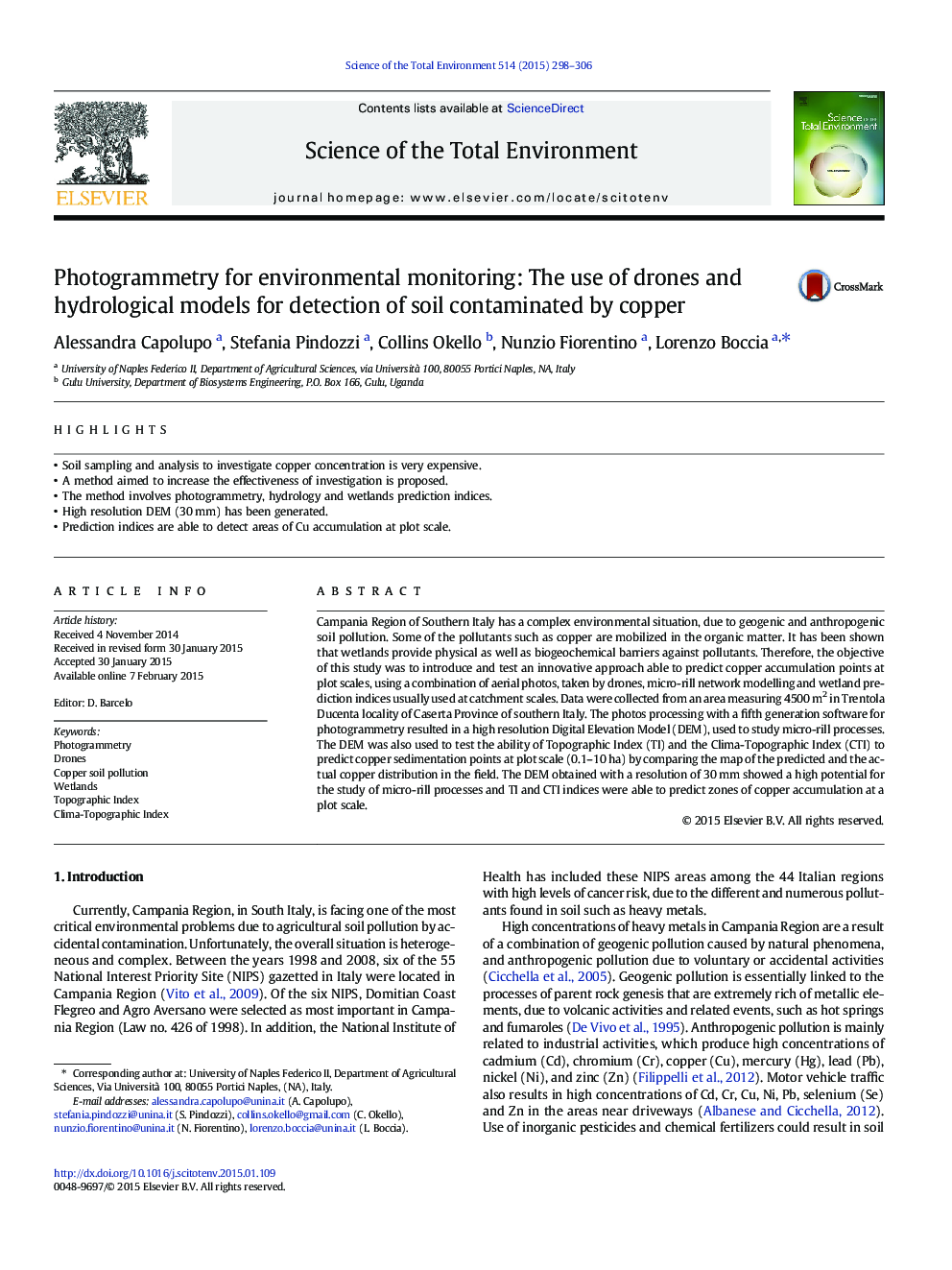| کد مقاله | کد نشریه | سال انتشار | مقاله انگلیسی | نسخه تمام متن |
|---|---|---|---|---|
| 6327062 | 1619764 | 2015 | 9 صفحه PDF | دانلود رایگان |

- Soil sampling and analysis to investigate copper concentration is very expensive.
- A method aimed to increase the effectiveness of investigation is proposed.
- The method involves photogrammetry, hydrology and wetlands prediction indices.
- High resolution DEM (30Â mm) has been generated.
- Prediction indices are able to detect areas of Cu accumulation at plot scale.
Campania Region of Southern Italy has a complex environmental situation, due to geogenic and anthropogenic soil pollution. Some of the pollutants such as copper are mobilized in the organic matter. It has been shown that wetlands provide physical as well as biogeochemical barriers against pollutants. Therefore, the objective of this study was to introduce and test an innovative approach able to predict copper accumulation points at plot scales, using a combination of aerial photos, taken by drones, micro-rill network modelling and wetland prediction indices usually used at catchment scales. Data were collected from an area measuring 4500Â m2 in Trentola Ducenta locality of Caserta Province of southern Italy. The photos processing with a fifth generation software for photogrammetry resulted in a high resolution Digital Elevation Model (DEM), used to study micro-rill processes. The DEM was also used to test the ability of Topographic Index (TI) and the Clima-Topographic Index (CTI) to predict copper sedimentation points at plot scale (0.1-10Â ha) by comparing the map of the predicted and the actual copper distribution in the field. The DEM obtained with a resolution of 30Â mm showed a high potential for the study of micro-rill processes and TI and CTI indices were able to predict zones of copper accumulation at a plot scale.
Journal: Science of The Total Environment - Volume 514, 1 May 2015, Pages 298-306